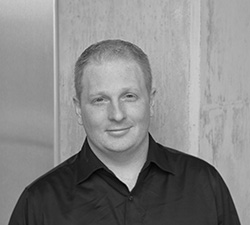
Chris Beg
Senior Wireless Systems Architect, Cognitive Systems Corp.
Biography:
Chris Beg is a technology enthusiast with a background in the semiconductor space, specializing in analog and mixed-signal IC design. Chris has always been fascinated by computers, electronics, and technology in general, getting his first taste of the industry while working part-time as a system administrator for a small internet service provider in high school. While there, Chris witnessed the exponential and rapid growth of networking and telecommunications in the 1990s, and by the age of 18, he had earned his CCNA certification.
Chris graduated from the University of Waterloo with a MASc in Electrical Engineering and a BASc in Computer Engineering, pursuing his objective of using technology to improve the lives of others. He spent several years during the start of his career programming assembly code for in-house designed SoCs, targeting hearing aid applications. After completing his Master’s degree, he transitioned into the area of analog and mixed-signal ASIC design. Chris has contributed significantly to the advancement of product capabilities by working on a variety of IP components and ASSPs for the hearing aid and medical industries. In addition to his design activities, Chris has driven the development of numerous semiconductor projects from inception to completion while serving in a variety of technical leadership roles. Chris believes that technology is constantly changing and improving, and has dedicated himself to learning and developing new technologies.
Chris joined Cognitive Systems in 2014 as an Analog IC designer and now works as a Senior Wireless Systems Architect/Radio Standards. Throughout his time at Cognitive Systems, he played a key role in the development of an advanced, fully integrated software-defined radio ASIC, and is now completely focused on the lowest level aspects related to the development of Cognitive System’s patented WiFi Motion technology. Chris also chairs the WBA’s WiFi Sensing group and aided in the successful delivery of three white papers geared towards the introduction, test methodology, and deployment guidelines of WiFi Sensing technology.


